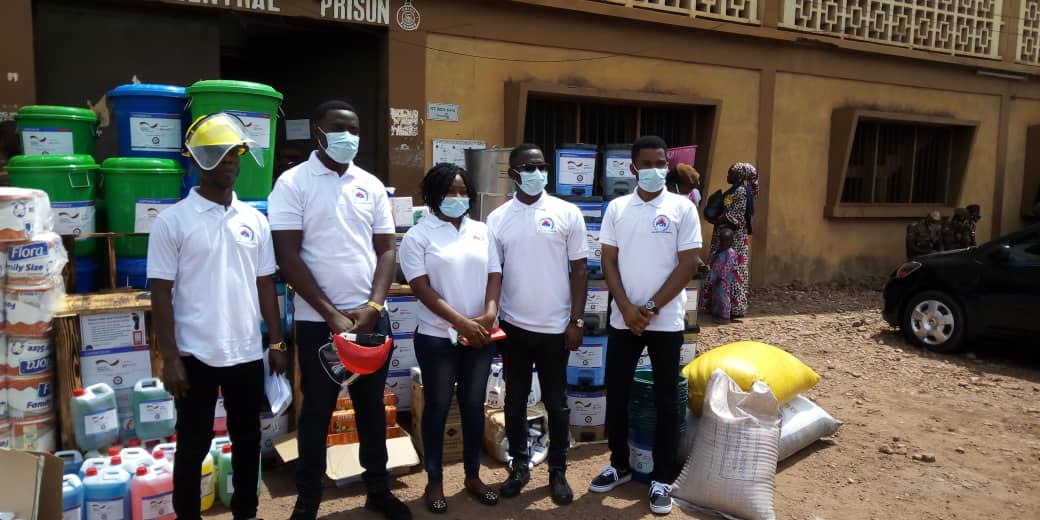Overcrowding and congestion of major prisons in Ghana is critical. Sometimes, remand inmates even spend longer periods at prisons than sentenced prisoners. It is urgent to take a look at challenges confronting prisoners, remand inmates and proffer remedy. In view of this, the Perfector of Sentiments foundation, (POS foundation), a human right and youth centered NGO has called on the president of the republic, Nana Addo Dankwa Akuffo Addo to act through article 72 of Ghana’s constitution to give amnesty to petty offenders in prison custody.
According to the foundation, the current congestion in Ghana’s prisons is worrying and poses a health threat to both inmates and officers of prison especially during a pandemic like COVID 19. Founder and Executive Director of the foundation, Jonathan Osei Owusu made the appeal while presenting COVID 19 prevention items to the Tamale central prisons.
He said “when there is a pandemic of this sort, almost everybody will not be spared, for that matter if the number is less the impact can be mitigated, that is why we are calling for immediate action by the president under article 72 to grant amnesty to minor offenders”.
Article 72
Article 72 of the constitution says (1) the president may, acting in consultation with the council of state (a) grant to a person convicted of an offence a pardon either free or subject to lawful conditions; or (b) grant to a person a respite, either indefinite or for a specified period, from the execution of punishment imposed on him for an offence; or (c) substitute a less severe form of punishment imposed on a person for an offence; or (d) remit the whole or part of a punishment imposed on a person or of a penalty or forfeiture otherwise due to government on account on any offence.
Non-custodial sentence
POS also called for the activation of the noncustodial act (community service) which will offer alternative sentencing and reduce overcrowding in prisons. Non-Custodial Sentence refers to a punishment given by a court of law that does not involve a prison term. Non-Custodial sentence has various forms including community service order, probation order, supervision order (parole), drug testing and treatment order etc. In Ghana Currently, the existing laws do not make room for adequate alternative sentencing which usually results to the sentencing of minor offenders to incarceration or pre-trial detention. The Criminal Procedure and other offences Act (Act 30) only outlines punishment such as Death, Imprisonment, Detention, Fine, Payment of Compensation and Liability to Police Supervision. This has led to severe overcrowding and congestion in almost all of Ghana’s prison facilities.
The introduction of a Non-Custodial Sentencing Policy and Law, POS foundation believes will go a long way to greatly reduce prison congestion and help control prison overcrowding by minimizing the large inflow of convicts charged with misdemeanor/petty crimes and promote Human Rights to bring Ghana in line with International and UN regulations for the rights of Prisoners.
Donation
POS foundation donated handwashing facilities, thermometer guns, liquid soaps, hand sanitizers and an amount of one thousand Ghana cedis to facilitate the distribution of the items to other prison facilities within the Northern region.
Speaking to newsmen after receiving the items, Acting PRO of the Tamale central prisons, ASP Isaac Amoako expressed gratitude to the foundation for the kind gesture. Reacting to the facility’s case of COVID 19, Mr. Amoako said the officer who tested positive has self-isolated and responding to treatment. An officer of the Tamale central prison tested positive for COVID 19 last month.
Source:Ghana/Tamale/zaaradio.com/99.3fm/Jonas Biawurbi


